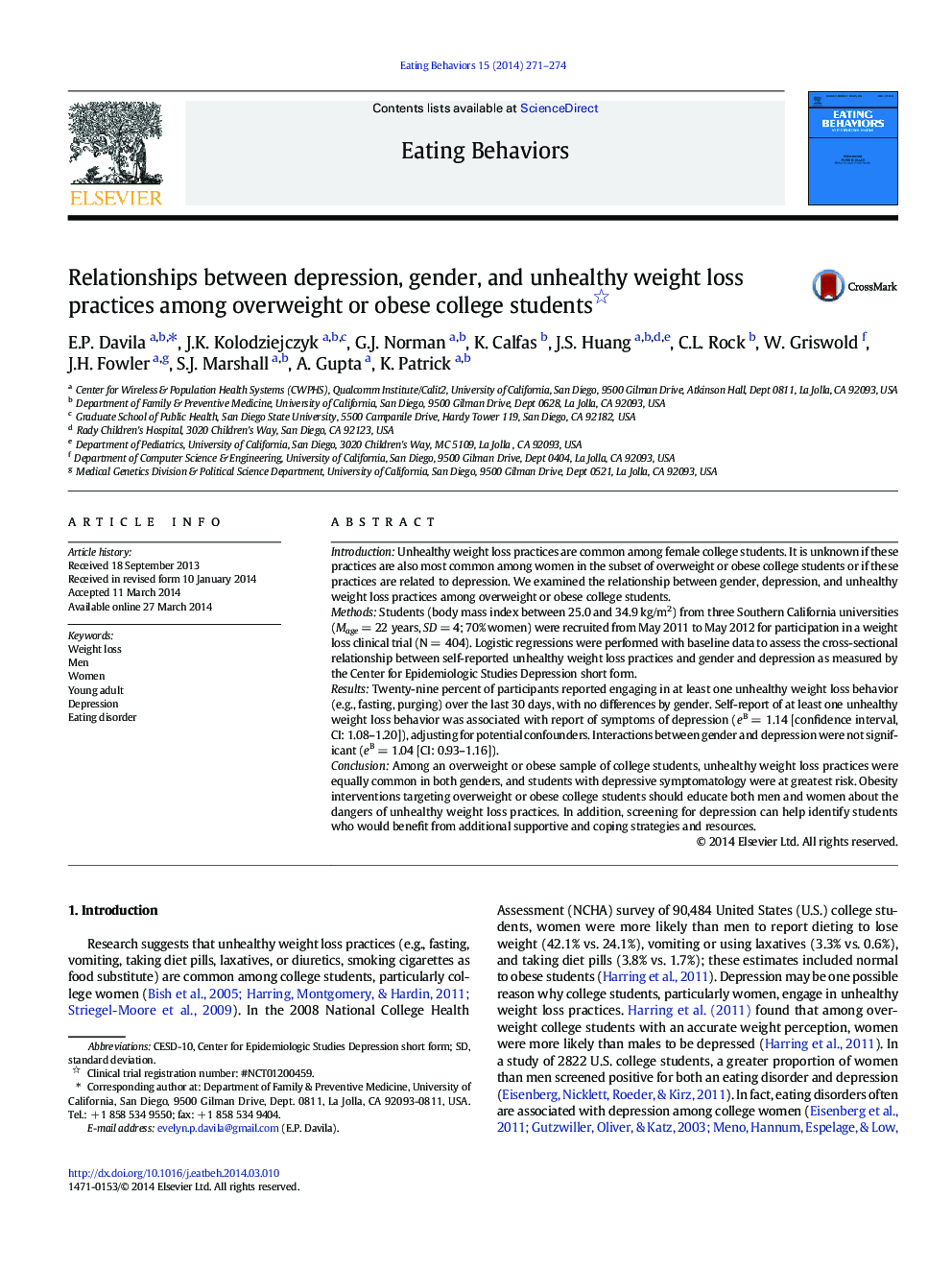| کد مقاله | کد نشریه | سال انتشار | مقاله انگلیسی | نسخه تمام متن |
|---|---|---|---|---|
| 906493 | 917007 | 2014 | 4 صفحه PDF | دانلود رایگان |
• 29% of participants report engaging in at least one unhealthy weight loss behavior.
• These behaviors are equally common among men and women college students.
• Those who show signs of depression are at greatest risk for these behaviors.
IntroductionUnhealthy weight loss practices are common among female college students. It is unknown if these practices are also most common among women in the subset of overweight or obese college students or if these practices are related to depression. We examined the relationship between gender, depression, and unhealthy weight loss practices among overweight or obese college students.MethodsStudents (body mass index between 25.0 and 34.9 kg/m2) from three Southern California universities (Mage = 22 years, SD = 4; 70% women) were recruited from May 2011 to May 2012 for participation in a weight loss clinical trial (N = 404). Logistic regressions were performed with baseline data to assess the cross-sectional relationship between self-reported unhealthy weight loss practices and gender and depression as measured by the Center for Epidemiologic Studies Depression short form.ResultsTwenty-nine percent of participants reported engaging in at least one unhealthy weight loss behavior (e.g., fasting, purging) over the last 30 days, with no differences by gender. Self-report of at least one unhealthy weight loss behavior was associated with report of symptoms of depression (eB = 1.14 [confidence interval, CI: 1.08–1.20]), adjusting for potential confounders. Interactions between gender and depression were not significant (eB = 1.04 [CI: 0.93–1.16]).ConclusionAmong an overweight or obese sample of college students, unhealthy weight loss practices were equally common in both genders, and students with depressive symptomatology were at greatest risk. Obesity interventions targeting overweight or obese college students should educate both men and women about the dangers of unhealthy weight loss practices. In addition, screening for depression can help identify students who would benefit from additional supportive and coping strategies and resources.
Journal: Eating Behaviors - Volume 15, Issue 2, April 2014, Pages 271–274
